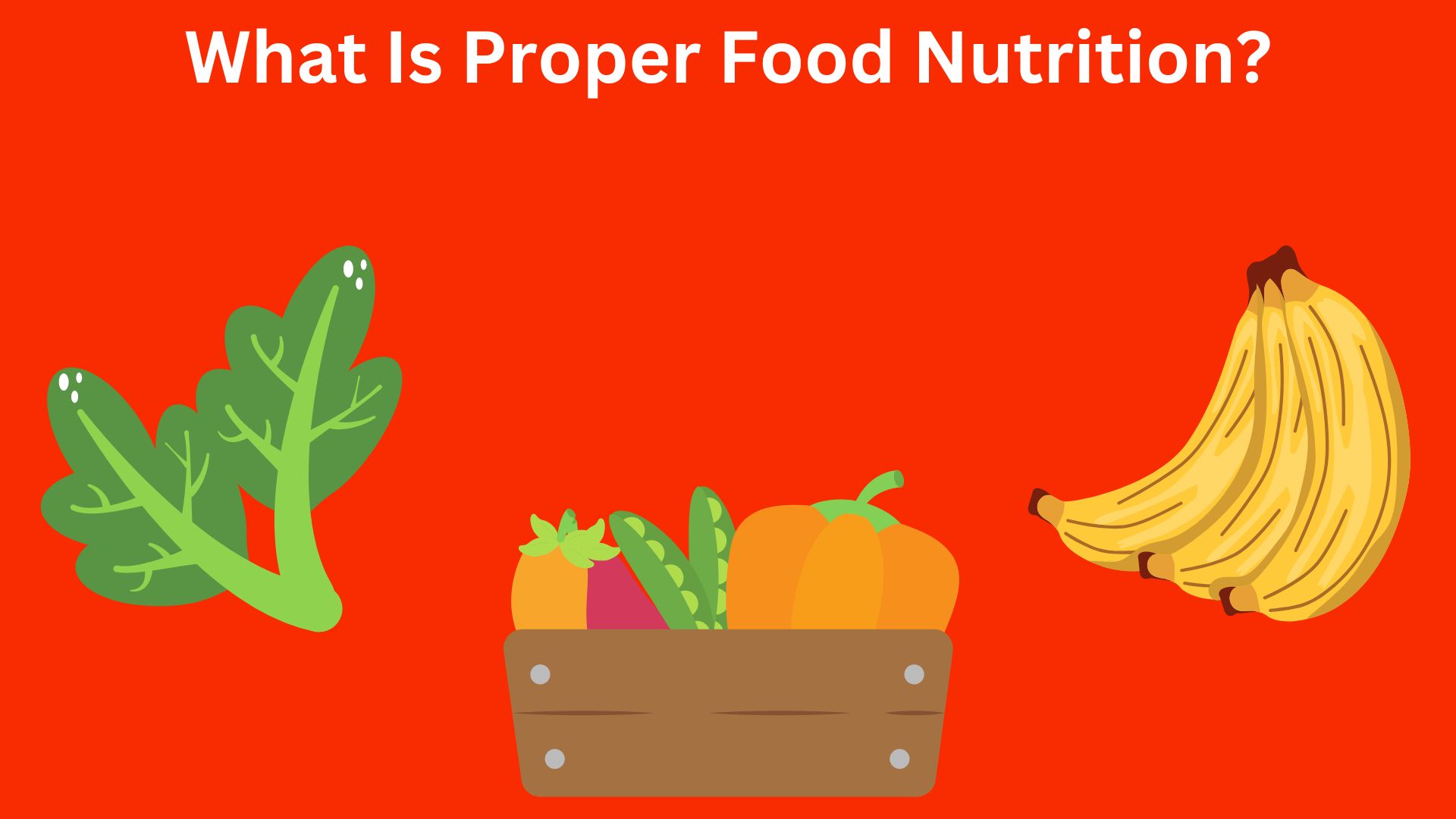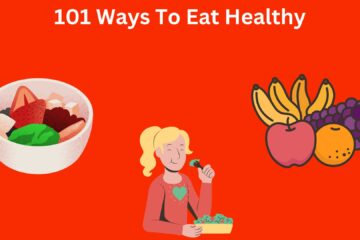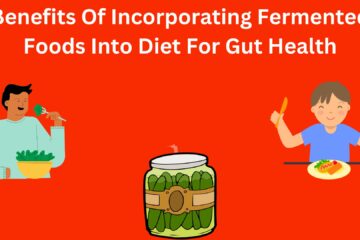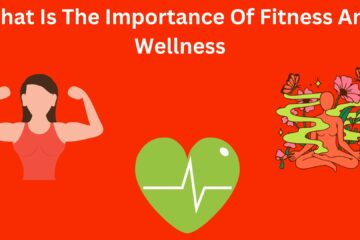Proper food nutrition is critical for overall health and well-being. It is the process of getting the nutrients we need from the meals we eat in order to sustain the body’s functions and activities. Obesity, type 2 diabetes, heart disease, and certain types of cancer can all be prevented with proper nutrition. It can also help children and adolescents grow and develop normally, as well as boost physical and mental performance in adults.
However, with so many harmful food alternatives and nutrition misinformation, it can be difficult to identify what constitutes sufficient nutrition. Many individuals rely on fast food and convenience meals, which are generally heavy in added sugars, salt, and bad fats. As a result, it is not uncommon for people to consume much too many empty calories and far too few nutrients.
Proper food nutrition entails eating a well-balanced diet that contains a range of foods in the proper quantities. It is critical to ingest a variety of nutrients, including carbs, proteins, fats, vitamins, and minerals, because each of these nutrients serves a distinct and significant purpose in the body.
We will look at the basics of healthy food nutrition, the necessity of a balanced diet, and how to make informed food choices to support optimal health in this blog. We will go over the many types of nutrients, their functions, and the recommended daily consumption for each nutrient. We will also look at some common nutrition myths and offer advice on how to make healthy food choices that are tailored to your own requirements and interests.
The Basics Of Proper Food Nutrition

1. Consume a range of foods
A healthy diet contains a variety of foods from all dietary groups, such as vegetables, fruits, grains, proteins, and healthy fats. Eating a variety of foods ensures that your body receives all of the nutrients it requires.
2. Choose whole, unprocessed foods
Whole, unprocessed foods are more healthy than processed foods. Fresh fruits and vegetables, whole grains, and lean proteins are examples of them. Aim to include more of these foods in your diet while limiting your intake of processed meals, which frequently have added sugars, sodium, and bad fats.
3. Avoid added sugars and salt
Added sugars and salt have been linked to obesity, type 2 diabetes, and high blood pressure. Choose foods with few added sugars and salt, as well as natural sources of sweetness and taste, such as fresh fruit and herbs.
4. Get adequate protein
Protein is required for tissue growth, repair, and maintenance in the body. It is present in a wide range of foods, including meats, dairy products, beans, and legumes. Include a protein source in every meal and snack to help you feel full and satisfied.
5. Drink enough of water
Water is vital for optimum hydration and supporting the processes of the body. Drink at least 8 cups of water every day, and more if you are physically active or living in a hot climate. Sugary drinks should be avoided since they might contribute to weight gain and other health issues.
Types Of Nutrients And Their Functions

The body need six types of nutrition to function properly: carbs, proteins, fats, vitamins, minerals, and water. Here’s a quick rundown of each nutrient and its functions:
1. Carbohydrates
Carbohydrates are the primary source of energy in the body. They can be found in grains, fruits, vegetables, and legumes, among other foods. Carbohydrates are classified into two types: simple carbs (found in sugary meals) and complex carbs (found in starchy foods and broken down more slowly by the body).
2. Proteins
Proteins are required for tissue growth, healing, and maintenance in the body. They can be found in a variety of foods, including meats, dairy products, beans, and legumes. Different proteins perform different activities in the body, therefore it is critical to consume a range of protein sources to ensure that you are getting all of the necessary amino acids.
3. Fats
Fats provide energy and aid in the absorption and delivery of fat-soluble vitamins. Fats are classified into three types: saturated, unsaturated, and trans fats. It is critical to consume largely unsaturated fats, such as those found in olive oil, almonds, and avocados, and to minimize saturated and trans fats, which can raise the risk of heart disease.
4. Vitamins
Vitamins are micronutrients that the body requires in little amounts to function properly. Diverse vitamins serve different purposes, such as assisting in the formation of strong bones (vitamin D) or stimulating the immune system (vitamin C). Vitamins can be obtained from a number of meals or as supplements.
5. Minerals
Minerals are inorganic substances that the body requires in trace amounts in order to function properly. Diverse minerals serve different purposes, such as assisting in the formation of strong bones (calcium) or transporting oxygen throughout the body (iron). Minerals can be obtained through a number of meals or as supplements.
6. Water
Water is necessary for adequate hydration and sustaining the body’s processes. It aids in the regulation of body temperature, the delivery of nutrients, and the elimination of waste items. Drink at least 8 cups of water every day, and more if you are physically active or living in a hot climate.
Common Misconceptions About Proper Food Nutrition

1. All calories are created equal.
Some people believe that all calories, regardless of source, are the same. However, caloric quality is critical. Calories from nutrient-dense, natural foods are more healthful and gratifying than calories from sugary, processed foods.
2. Carbohydrates are harmful.
Many people avoid carbs because they believe they are unhealthy or fattening. Carbohydrates, on the other hand, are a significant source of energy for the body and should be included in a healthy diet. To help keep blood sugar levels consistent, choose complex carbs like whole grains over simple carbs like sugary meals.
3. Fat-free or low-fat foods are always better for you.
It’s a frequent misperception that fat-free or low-fat foods are always better for you than full-fat options. To compensate for the lack of fat, some fat-free or low-fat foods may be heavy in added sugars or other undesirable elements. It is critical to read labels and select items manufactured with full, unprocessed components.
4. Supplements can be used in place of a balanced diet.
Some people assume that supplements, rather than whole foods, can provide all of the nutrients they require. However, getting nutrients from a variety of complete foods is generally suggested because they often contain a number of beneficial substances in addition to essential elements.
5. Eat multiple little meals throughout the day.
Some people believe that having multiple little meals throughout the day is preferable to eating a few larger meals. However, there is no data to back up this assertion, and it ultimately comes down to personal preference. It is critical to find an eating plan that works for you and your lifestyle.
Frequently Asked Questions About Proper Food Nutrition
A balanced diet comprises a variety of different sorts of foods in the appropriate quantities. To support the body’s operations and activities, it should have a combination of carbs, proteins, fats, vitamins, and minerals.
The quantity of calories you require per day is determined by a number of factors, including your age, gender, weight, height, and level of physical activity. A basic rule of thumb is to aim for a calorie intake of 1200-1500 calories per day for women and 1500-1800 calories per day for males, however, these amounts can vary.
The recommended daily intake amounts for several nutrients change depending on a person’s age, gender, and level of physical activity. It is generally advised that each food category take a particular amount of servings per day. The USDA, for example, recommends that adults consume 6-8 ounces of grains per day, 2-3 cups of vegetables, 2 cups of fruit, 3 cups of dairy, and 5-6 ounces of protein.
In most circumstances, a healthy, diverse diet will provide you with all of the nutrients you require. Certain people, such as pregnant women, older persons, and vegetarians, may need to take supplements to ensure that they are obtaining enough nutrients.
Choosing whole, unprocessed foods, eating a range of different types of foods, minimizing added sugars and salt, and reading labels to make informed judgments are some guidelines for making healthy food choices. It is also critical to pay attention to your body’s hunger and fullness cues and to develop an eating habit that works for you and your lifestyle.
Conclusion
Proper food nutrition is critical for overall health and well-being. It entails ingesting a range of foods in the proper proportions to ensure that the body receives all of the vital nutrients. A healthy diet comprises a variety of carbs, proteins, fats, vitamins, minerals, and water. Proper nutrition can aid in the prevention of chronic diseases, the promotion of healthy growth and development, and the enhancement of physical and mental performance.
While navigating a large amount of nutrition information might be difficult, it is critical to make informed dietary choices based on credible sources. You may support good health and well-being by eating a balanced diet and listening to your body’s hunger and fullness cues. Remember that there is no one-size-fits-all approach to adequate food nutrition, therefore it is critical to discover an eating pattern that works for you and your specific needs and tastes.




[…] this blog, we will explore the potential weight loss benefits of green tea and oats, as well as discuss ways to incorporate these foods into your diet for […]
[…] 1. Eat a balanced diet […]
[…] after an exercise, this is a common topic, and it’s vital to evaluate what kinds of meals and drinks can best support your fitness […]